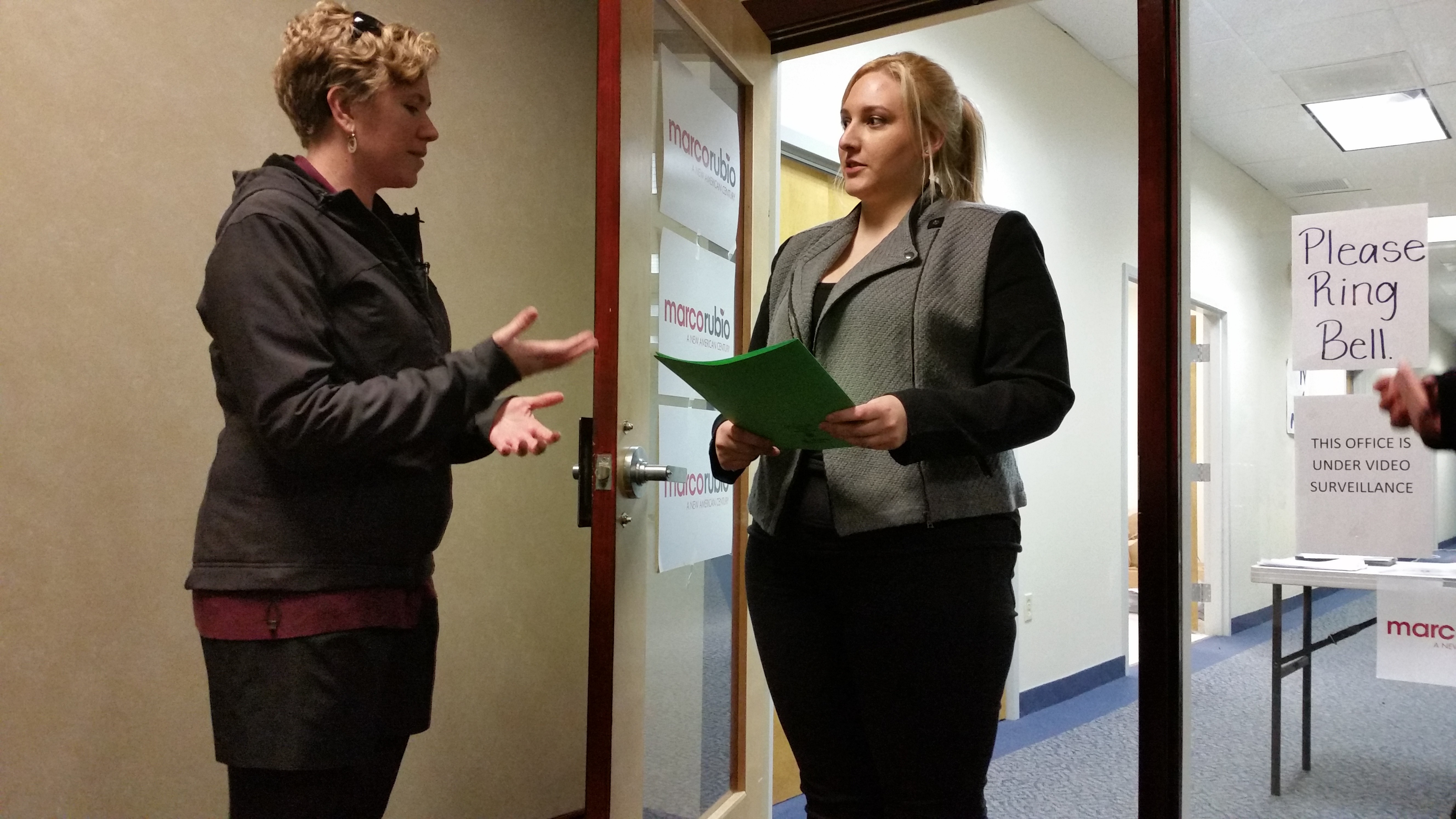
During election season, you have a unique opportunity to get candidates on the record about issues that are important to you—and to influence their opinions.
You can do this by seeking out a candidate (for Congress, state legislatures, or any public office), asking them where they stand on issues you care about, and documenting their responses to share with the public. This is often referred to as “bird-dogging.”
In addition to letting candidates and office-holders know what issues matter to the community, bird-dogging can also generate media coverage that helps inform the public.
How to bird-dog
Check the candidate’s schedule. If it isn't on their campaign website, call their campaign office.
Do your research. Get to know the candidate's position.
Prepare your question. Make it brief, fact-based, and direct. Practice until you can ask it without notes. Prepare a follow up. (See more tips on what makes a good bird-dogging question.)
Arrive early. If there’s a question-and-answer session, you'll want to be close enough for the candidate to see you and call on you.
Ask your question early. When candidates invite questions, most people will not immediately raise their hands. If you do, you’re more likely to be called upon.
Speak slowly and clearly. Make sure the candidate and other attendees, including the media, can understand what you’re saying.
Be in the candidate's path. Candidates often want to meet as many people as possible at events, which creates informal opportunities to ask a question as you're shaking their hand.
Bring other people with you for support and to film. But don’t sit or stand together to improve the odds that more than one of you will get to ask a question.
Record your interaction. Get the candidate on the record by having a friend record a video of your exchange. If that’s not possible, write down the candidate’s response.
Be prepared to speak to the media. Journalists often like to talk to someone who has asked the candidate a question. Remember to stay on message and talk to the reporter about the issue you asked about.
Share what you’ve learned. Post your recording or comments on social media. Research and use hashtags related to the issue to connect to the online discussions.

What makes a good bird-dog question?
Use our bird-dog question checklist.
A good question:
- Focuses on a particular issue
- Is concise
- Puts candidate on the spot
- Informs listeners, including reporters
For an even better question, make it personal. Mention:
- Anecdotes from your life
- Local facts
- Candidate’s voting record and quotes
What to avoid:
- Softball questions, like “What do you think about…?”
- Multi-issue questions
- Rambling questions
- Long questions
- Overly technical questions
- Using unfamiliar acronyms